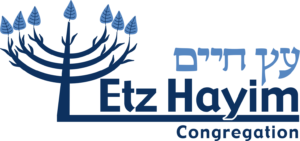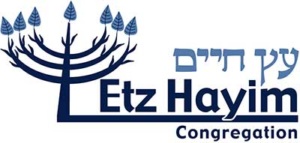Instructions for counting the omer are found on our Omer Overview Page. You can find the specific blessing for today at chabad.org.
We’re dedicating a new Sefer Torah on the first day of Shavuot. In honor of this joyous occasion, we’re using the counting of the Omer to take a whirlwind trip through the Torah
Today’s portion is Naso from the book of Numbers. Today’s insight was generously provided by Irene B.
Verses of note: Numbers 6:22-26
What caught your attention in this parashah?
Parsha Naso is the source of the Priestly Blessing a/k/a the Birkat Kohanim a/k/a the Threefold Blessing: May the Lord bless you and protect you. May the Lord shine his countenance toward you and grant you grace. May the Lord bestow His favor upon you and grant you peace. Service leaders at Etz Hayim say these words (in Hebrew) during the Shacharit Amidah and we respond ken y’hi ratzon (may it be His will). Our rabbi uses these words to bless students when they become bar and bat mitzvah. Families who bless their children at home before Shabbat dinner also use these words. What does it mean when we ask the Lord to shine His countenance towards someone?
What’s one explanation for these verses?
The words (ponav elecha) literally mean for His “face” to “shine” or “illuminate”* G-d doesn’t have a face, but when Moses came down from Mount Sinai after receiving the Torah, it is said that Moses’ face glowed. So maybe we are asking that something similar will happen for the person being blessed – that they will have the opportunity to stand in G-d’s light and absorb enough that they themselves will send forth light and illuminate the path. The translation I like best is “may G-d make his presence enlighten you” (Rabbi Aryeh Kaplan, 1935-1983). If such a blessing came true, what effect would that have on a person? Perhaps they would better understand their own life goals and also be able to light the path for others around them. The interpretation I like most is by Rabbi Samson Raphael Hirsch (1808-1888) who says that it means “May G-d reveal to you His objectives and the purposes that He means to have fulfilled through you.”
* Note: Our Etz Hayim Chumash (page 804) acknowledges the literal meaning of these words but chooses to translate them as “May the Lord deal kindly with you.”
Where to Learn More
The Pentateuch, Samson Raphael Hirsch (Judaica Press).
The Living Torah, Aryeh Kaplan (Maznaim Publishing Corp).


